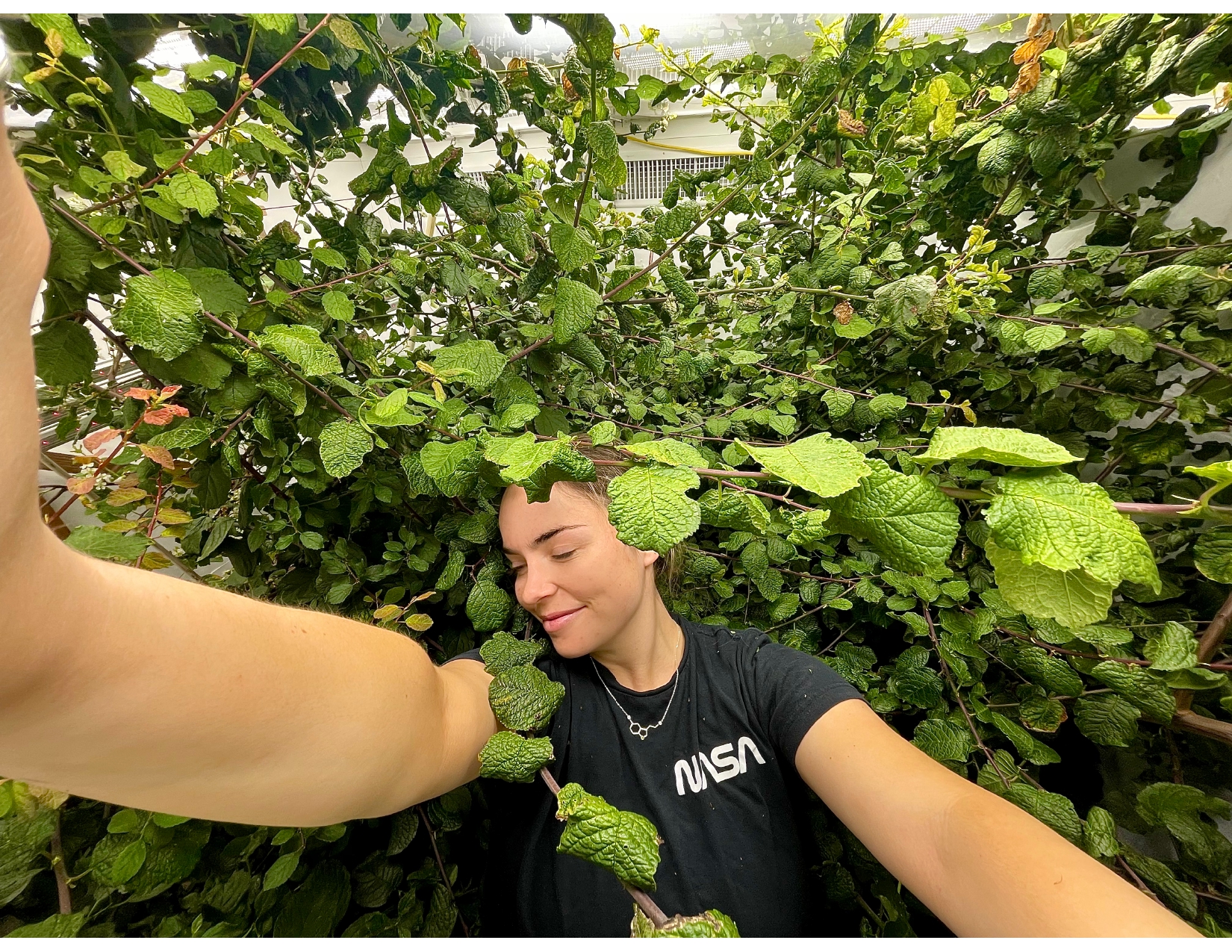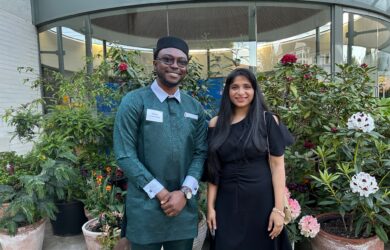
35 US Scholars will join the 25th anniversary cohort in September, studying everything from growing tomatoes in space to cyberbiosecurity
Since its inception Gates Cambridge has selected scholars based on their outstanding academic achievement and their commitment to change the world for the better. Already they are having a ripple effect in the many disciplines and industry sectors they have gone on to work in.
Professor Eilís Ferran
Thirty-five of the most academically outstanding social leaders in the US have been selected to be part of the 2025 class of Gates Cambridge Scholars at the University of Cambridge, marking the Scholarship’s 25th anniversary.
The US Scholars-elect, who will take up their awards this October as part of an anniversary cohort of 100 Scholars, are from a wide range of backgrounds. They come from 36 universities across the United States and beyond, including nine institutions that have, for the first time, produced a Gates Cambridge Scholar. They are: College of Wooster, Columbia College Chicago, Emerson College, University of Arkansas for Medical Sciences, Everett Community College, Grand Valley State University, Lafayette College, North Seattle College and the University of New Hampshire. Thirteen will pursue PhDs and 22 will undertake one-year master’s degrees.
They include:
Annie Shelton [see above], who is doing a PhD in Plant Sciences. Her research will investigate the engineering of plant circadian rhythms and controlled environments to enhance photosynthetic efficiency for resilient food production in space and on Earth.
Benjamin Friedman, who will be doing a PhD in Film and Screen Studies. He will study omnibus segments [shorter films that make up a single feature-length film] produced by filmmakers from African countries. His goal is to challenge the academic perception of a homogeneous, African film language.
Pranav Ganta, who is doing an MPhil in Global Risk and Resilience, a new Cambridge course. He will develop frameworks for governing and de-risking emerging technologies in cyberbiosecurity, which lies at the intersection of the digital world and life sciences. He has previously researched the development of a novel oncolytic virus to treat glioblastoma, an aggressive brain cancer, and AI-equipped medical devices, brain-machine interfaces and healthcare access for refugees.
Eryk Salvaggio, who is doing a PhD in Digital Humanities. He has worked in art and technology for more than 25 years. His research will produce frameworks that examine assumptions about the use of generative AI in policy, pedagogy and design.
Sarah Nicholls, who is doing a PhD in Medical Science at the Cambridge Institute for Medical Research focused on neurogenomics. She aims to determine the molecular interactions of the protein tau, which helps maintain the shape of a cell and is implicated in Alzheimer’s disease and other neurodegenerative conditions. The aim is to make tau-based treatments for Alzheimer’s safer and more effective.
Hana Butler, who is doing an MPhil in Micro- and Nanotechnology Enterprise, on how micro- and nanostructures influence material performance, with a focus on scalable manufacturing techniques. The aim is to develop stronger, lighter and more efficient components.
Abigail Schipper, who is doing an MPhil in Engineering, focused on pre-hospital trauma systems in low and middle income countries. During the Covid pandemic, she volunteered as a paramedic which made her aware of many of the systemic issues in the emergency medical system and led to her starting the organisation LifeSaveHer which seeks to eliminate the gender disparity in out-of-hospital cardiac arrest survival rates.
Naina Agrawal-Hardin, who is doing an MPhil in Anthropocene Studies. She aims to contribute to the new field of transnational climate litigation and sharpen debates about the distribution of responsibility for today’s climate crisis by documenting the history of climate change projections and their reception by governments, fossil fuel companies and the public.
The 35 US Scholars-elect will study and research subjects ranging from the brain cells that drive neuronal plasticity in the olfactory system to the history of infrastructure in the Russian Arctic and digital museum anthropology.
The prestigious postgraduate scholarship programme – which fully funds postgraduate study and research in any subject at the University of Cambridge – was established through a US$210 million donation to the University of Cambridge from the Gates Foundation in 2000. Since the first class in 2001, Gates Cambridge has awarded 2,218 scholarships to scholars from 112 countries who represent nearly 800 universities globally (more than 200 in the USA) and around 90 academic departments and all 31 Colleges at Cambridge.
In addition to outstanding academic achievement the programme places an emphasis on social leadership in its selection process. The programme’s aim is to create a global network of future leaders committed to improving the lives of others.
The US Scholars-elect will join 65 Scholars from other parts of the world, who will be announced in early April. The full class of 2025 will comprise 100 new Scholars and will join current Gates Cambridge Scholars in October to form a community of around 300 current Scholars in residence at the world-leading University of Cambridge.
Professor Eilís Ferran, Provost of the Gates Cambridge Trust, said: “I’m delighted to announce the US Scholars for our 25th anniversary cohort. Since its inception Gates Cambridge has selected scholars based on their outstanding academic achievement and their commitment to change the world for the better. Already they are having a ripple effect in the many disciplines and industry sectors they have gone on to work in. We know that our new US Scholars – and those we announce in early April from other parts of the world – will thrive in the rich, international community at Cambridge and we trust that they will go on to have a significant impact in their various fields and more broadly, tackling the urgent global challenges we face today.”
*The director of our new Scholar-Elects is available here.












